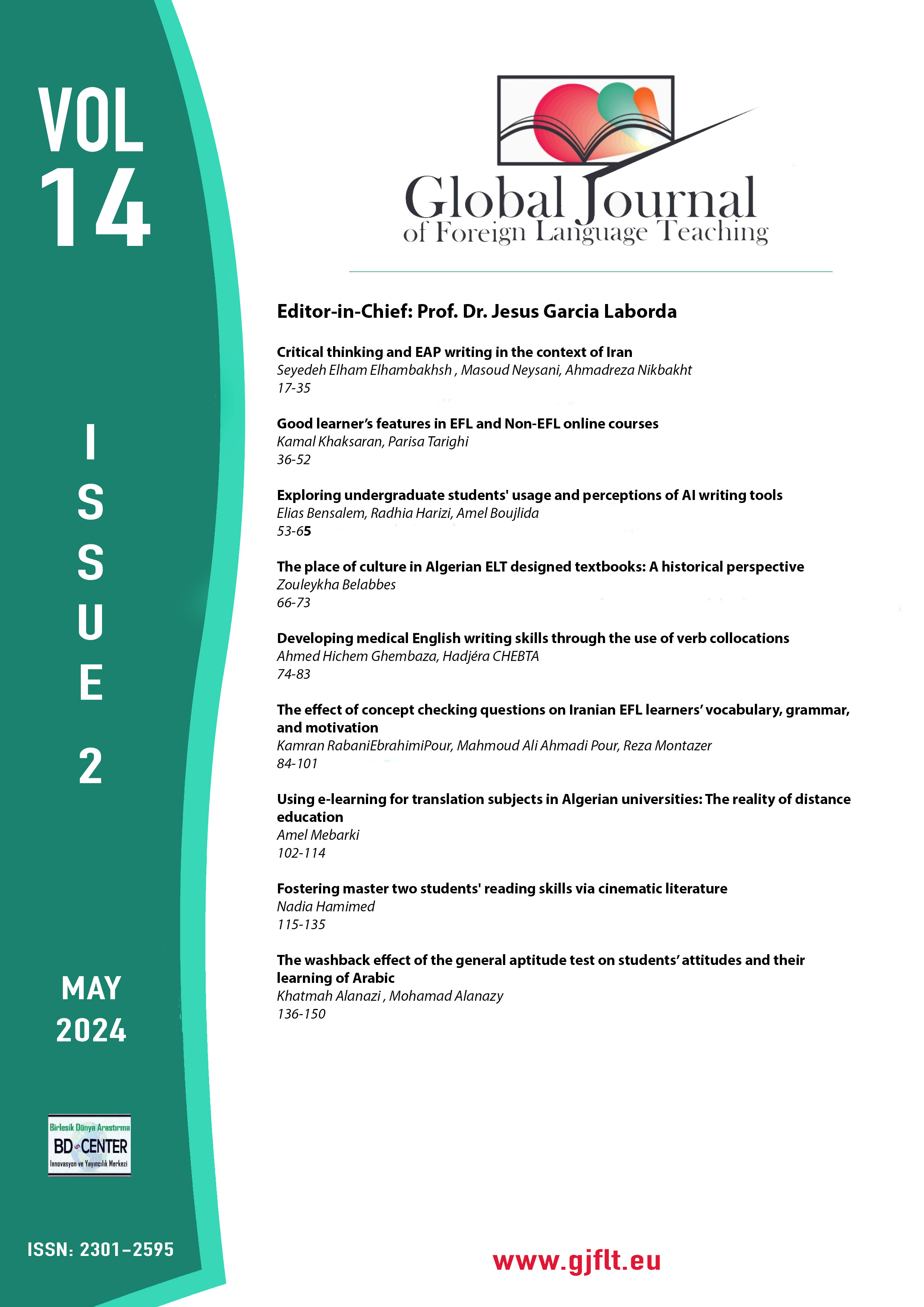Fostering master two students' reading skills via cinematic literature
Main Article Content
Abstract
The spread of audio-visual culture and the existence of more and more technologies in student life remind teachers and researchers to incorporate audio-visual materials and e-learning into foreign language teaching, especially literature teaching. One of the most popular audio-visual media related to literature that has become increasingly important in the field of literary communication is film adaptation. Therefore, the purpose of this research was to show the potential of film adaptation according to the requirements of literature research. To achieve this purpose, the study is conducted at Sidi Bel Abbes University, Algeria, involving master two EFL literature students and teachers, relying on two research tools; students' questionnaires and teachers' interviews. The research results show that film adaptations are very useful for teaching literature. The results also indicate that adaptation can improve students' understanding of a literary text and develop their reading analytical and critical skills. The study suggested that using more screen adaptations in classes facilitates understanding a literary text and makes the students overcome obstacles that hinder them from reading.
Keywords: Cinematic literature; cultivating; reading skills.
Downloads
Article Details

This work is licensed under a Creative Commons Attribution-NonCommercial-NoDerivatives 4.0 International License.
Authors who publish with this journal agree to the following terms:- Authors retain copyright and grant the journal right of first publication with the work simultaneously licensed under a Creative Commons Attribution License that allows others to share the work with an acknowledgement of the work's authorship and initial publication in this journal.
- Authors are able to enter into separate, additional contractual arrangements for the non-exclusive distribution of the journal's published version of the work (e.g., post it to an institutional repository or publish it in a book), with an acknowledgement of its initial publication in this journal.
- Authors are permitted and encouraged to post their work online (e.g., in institutional repositories or on their website) prior to and during the submission process, as it can lead to productive exchanges, as well as earlier and greater citation of published work (SeeThe Effect of Open Access).
